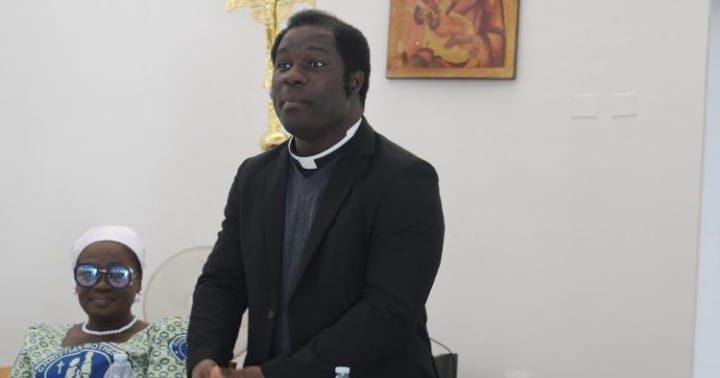Africa-Press – Ghana. The Reverend Father Albert Kyei Danso, the Chaplain for the Holy Family Ghanaian Catholic Community Church in Pordenone, Italy, has lauded the government’s Presidential Initiative in Agriculture and Agribusiness (PIAA) programme.
He observed that effective implementation of the PIAA would advance the nation’s agriculture sector and called on Agricultural Unions to support the programme.
Speaking in an interview with the Ghana News Agency (GNA) in Sunyani, the catholic priest said he was highly optimistic that the government would provide the storage facilities, build irrigation facilities as promised to tackle the post-harvest losses.
Rev Fr Danso said the nation ought to address post-harvest losses of crops and bad roads connecting to farm-gates and provision of ready markets to make the agriculture sector more attractive.
He said communities like Akomadan, Tuobodom and Derma well known for tomato production required storage and irrigation facilities, saying with modern agriculture machines and inputs farmers could add value to their farm produce.
Rev Fr Danso said as partners of development, there was the need for the government to actively engage churches and other religious bodies in the implementation of the PIAA and other socio-economic intervention programmes for the nation to derive the optimum benefit.
He said if the agriculture sector was made more attractive, more of the youth would engage in commercial farming and thereby help tackle the teeming growing youth employment situation in the country.
“When more people venture into the agribusiness sector the nation will boost her national food security, enhance job creation and reduce poverty,” Rev Fr Danso stated, saying that would greatly reduce the rate at which the nation’s productive youth sought greener pastures abroad.
Rev Fr Danso said agriculture and robust industrialization held the key to the nation’s economic prosperity, and that countries elsewhere were doing well because they had prioritized agriculture and industrialization.
He said “Ghana must do more to change people’s mindset that agriculture and farming are the reserve for the poor,” saying it was unfortunate that the nation’s rice import kept growing despite its fertile and arable lands.
“In fact, Ghana needn’t import rice, rather we must add value to our local rice, which has high nutritional value,” Rv Fr Danso said, and urged the government to motivate the unemployed graduates to engage in commercial farming and livestock production.
In another interview, Mr Boa Kawbena Nketia, an educationist and a cocoa and vegetable farmer at Atronie in the Sunyani Municipality, said post-harvest losses remained a huge challenge in the vegetable production sector.
He appealed for government intervention towards the storage and value addition to perishable crops like vegetables, saying the government ought to build processing factories and industries in the farming communities.
Mr Nketia said the government ought to do more to enlightened farmers on good farm and climate resilient farming practices, and called for the effective collaboration between Agricultural Extension Officers and farmers for improved yields.
Mr Jascot Hawkins Alhassan, another farmer engaged in economic crops and vegetables, cautioned farmers against the misapplication of fertilizers urging them to opt for organic manure.
He told the GNA that misapplication of fertilizers could not only lead to food poisoning, but also affect soil and crop fertility, urging farmers to ensure that they applied weedicides and pesticides at the right time.
For More News And Analysis About Ghana Follow Africa-Press







